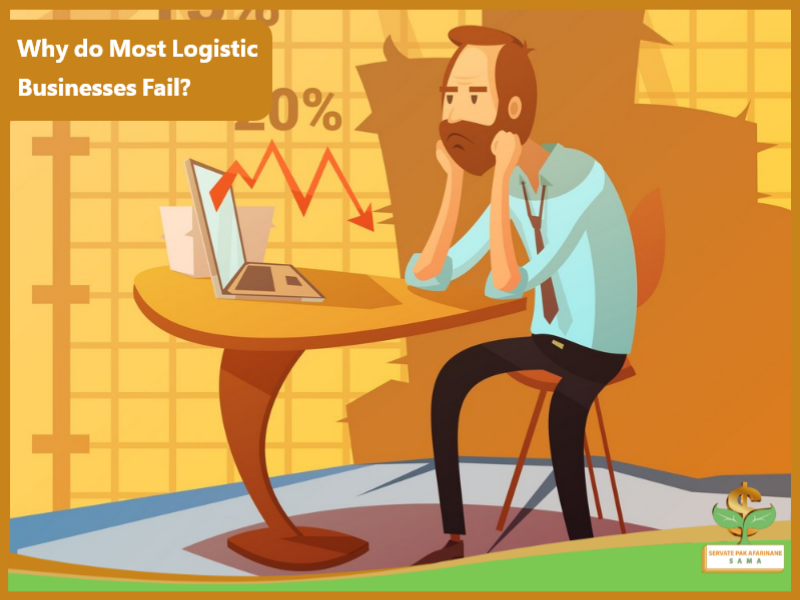
Why Do Most Logistics Businesses Fail?
The estimated value of the global logistics industry is to be worth 300 Billion USD. In India, around 10 to 15% of product cost can be attributed to logistics, which is comparatively significant from other economies like USA or China. Logistics companies in India are fast evolving, but this progress does not come without challenges, and in some cases, Logistics Businesses Fail. Why Do Most Logistics Businesses Fail, in this article we want to talk about it.
1. Incorrect and insufficiently verified business plan
The starting point for a great logistics business is a well-defined and verified business plan. Without it, you may as well start with nothing. Before starting the business it is necessary to choose the direction of development, but often this stage is missed by novice entrepreneurs.
To make money as a logistics business owner, you should have a business plan that serves as the primary document that guides your entire business. Plan the market, your competitors, and the products and services you plan to offer.
You will also faction in an advertising strategy, detailed financial projections, and short- and long-term operational needs. You will also need an overall strategic plan for your company.
2. Not insuring against risk
Logistics has one of the highest failure rates of any business. Most logistics businesses fail to make money or fail generally because they are unprepared for risk.
Insurance can be expensive, but it’s essential for the long-term survival of any business. It’s important to have a good logistics insurance broker who is familiar with the intricacies of your industry.
3. Failure to diversify the business
The logistics business is a very lucrative one. Though the market was initially saturated with some good players, the competition is steep now. The challenge for a large number of players is that they have tied down their entire business model to just delivering or moving packages around.
To stay afloat in this highly competitive environment, it is advisable to diversify at least your logistics business so it can survive beyond shipping. Consider these;
- What are you good at?
- What services do your clients need?
- How can you incorporate other services?
- What can you offer that will make your business unique?
You need to work on different aspects of the business every day to ensure that you are not falling into any one category.
4. Not adapting to changing trends
The logistics business is very challenging. More than 50% fail because their owners don’t adapt to changes in the market. A successful logistics business adapts to the changing market trends and the needs of its customers.
Remember those great business ideas can fall apart very quickly if a business does not adapt to the new and emerging needs and demands of consumers and clients.
5. No clear target markets or audience
Logistics businesses need clear target markets, which is kind of hard as all logistics companies have similar sets of clients. But some companies know their niche market very well and they only focus on those clients.
For example, a logistics company servicing medical equipment can service only hospitals as their niche market. In this way, the business has no competition from other logistics firms as some may serve hospitals and others may serve industries, or factories, or even both.
The advantage of having an exclusive niche like this is customers stick with the same sources year by year.
How do logistics companies and businesses work?
Logistics companies help businesses and organizations move products and materials to various locations. Logistics companies can handle the entire process themselves or provide clients with a full suite of tools.
For example, a logistics company can provide clients with software to manage fleets of trucks or even make the trucks available to the client for purchase. Or, a logistics company may specialize in shipping products overseas and offer clients access to their network of freight forwarders.
In general, logistics companies help businesses run smoothly by using technology and expertise in movement, packaging, storage, fulfillment, and transportation.


